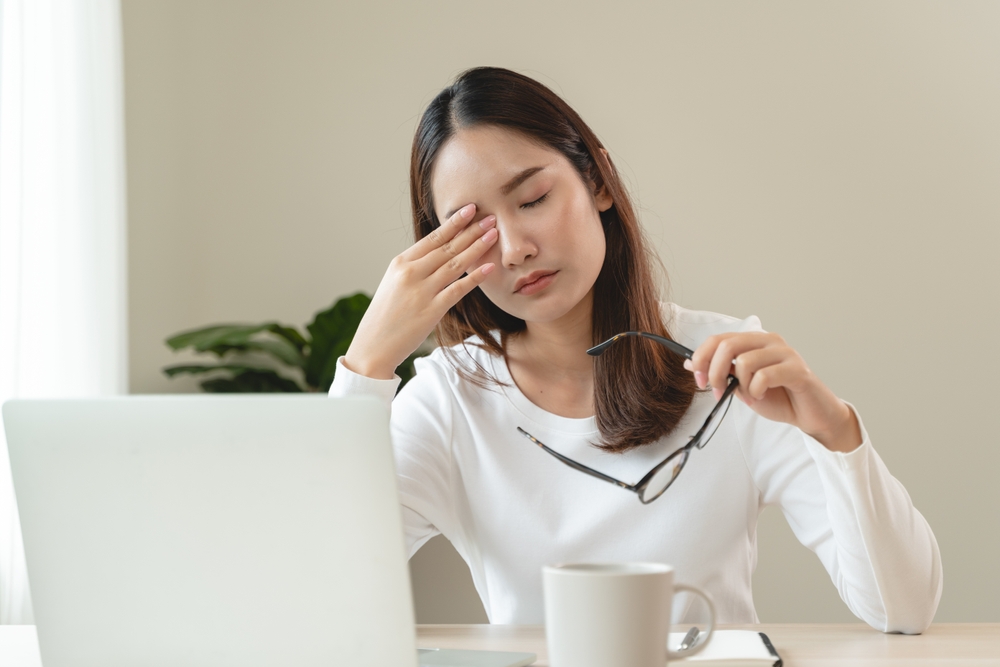
Dry Eye Syndrome: Causes, Symptoms, and Treatment Options
Dry Eye Syndrome (DES), also known as dry eye disease, is a common condition that occurs when your eyes do not produce enough tears or when the tears evaporate too quickly. It can lead to discomfort, irritation, and even long-term eye health issues if left untreated. At Lotus Eyecare, we aim to help you understand the underlying causes of dry eye, recognize its symptoms, and explore effective treatment options to bring relief and protect your vision.
Causes of Dry Eye Syndrome
Dry eye syndrome can be triggered by a variety of factors. The root cause is usually related to either insufficient tear production or poor tear quality. Here are some of the most common causes:
• Age: As we age, our body’s ability to produce tears naturally decreases. People over 50 are at a higher risk of developing dry eyes.
• Hormonal Changes: Women, in particular, are more prone to developing dry eyes due to hormonal fluctuations, especially during pregnancy, menopause, or while using oral contraceptives.
• Environmental Factors: Exposure to dry or windy environments, smoke, air conditioning, or prolonged screen time can lead to quicker evaporation of tears, increasing the likelihood of dry eye symptoms.
• Medical Conditions: Certain autoimmune diseases like rheumatoid arthritis, Sjögren’s syndrome, and diabetes can contribute to decreased tear production. Conditions such as blepharitis or meibomian gland dysfunction can also interfere with the proper functioning of the tear film.
• Medications: Certain medications, including antihistamines, antidepressants, and blood pressure medications, can reduce tear production as a side effect.
• Contact Lenses: Wearing contact lenses for extended periods can contribute to dry eyes, especially if the lenses are not adequately lubricated or the eyes are not producing enough tears.
Symptoms of Dry Eye Syndrome
The symptoms of dry eyes can range from mild irritation to more serious discomfort. Common symptoms include:
• A persistent dry, gritty, or sandy sensation in the eyes
• Redness or irritation
• Sensitivity to light (photophobia)
• Blurred vision, especially after prolonged screen use
• A burning or stinging feeling
• Watery eyes
• Difficulty wearing contact lenses
These symptoms may worsen in specific conditions, such as during air travel, in air-conditioned spaces, or after reading or using a computer for an extended period.
Treatment Options for Dry Eye Syndrome
There are various treatment options available for managing dry eye syndrome. Depending on the severity of your symptoms, your eye doctor at Lotus Eyecare may recommend one or a combination of the following treatments:
• Artificial Tears: Over-the-counter artificial tears can help lubricate your eyes and provide temporary relief from mild dry eye symptoms. These eye drops are often the first line of defense.
• Prescription Medications: For more severe cases, prescription eye drops may be recommended. These medications help reduce inflammation in the eyes and improve tear production over time.
• Punctal Plugs: To retain tears and reduce evaporation, your eye doctor may insert tiny, biocompatible plugs (punctal plugs) into your tear ducts to block drainage, keeping more moisture on the surface of your eyes.
• Lid Hygiene and Warm Compresses: Blepharitis or meibomian gland dysfunction (MGD), which affect the eyelids and oil glands, can contribute to dry eyes. Regular eyelid hygiene, such as warm compresses and gentle scrubbing with lid cleansers, can help open clogged oil glands and improve tear quality.
• Nutritional Supplements: Omega-3 fatty acids, found in fish oil supplements, have been shown to improve tear quality by reducing inflammation and increasing oil production in the tear film.
Optimizing Your Eye Health and Comfort with Lotus Eyecare
Dry eye syndrome is more than just a minor irritation—it can significantly impact your quality of life if left untreated. By understanding the causes, recognizing the symptoms, and exploring the treatment options available at Lotus Eyecare, you can take the first step toward lasting relief.
If you experience dry eye symptoms or over-the-counter solutions aren’t providing relief, schedule a consultation with Lotus Eyecare. We can perform a detailed assessment to determine the underlying cause of your dry eyes and recommend the best course of treatment. Contact our office in Frisco, Texas, by calling (972) 334-9095 to book an appointment today.








